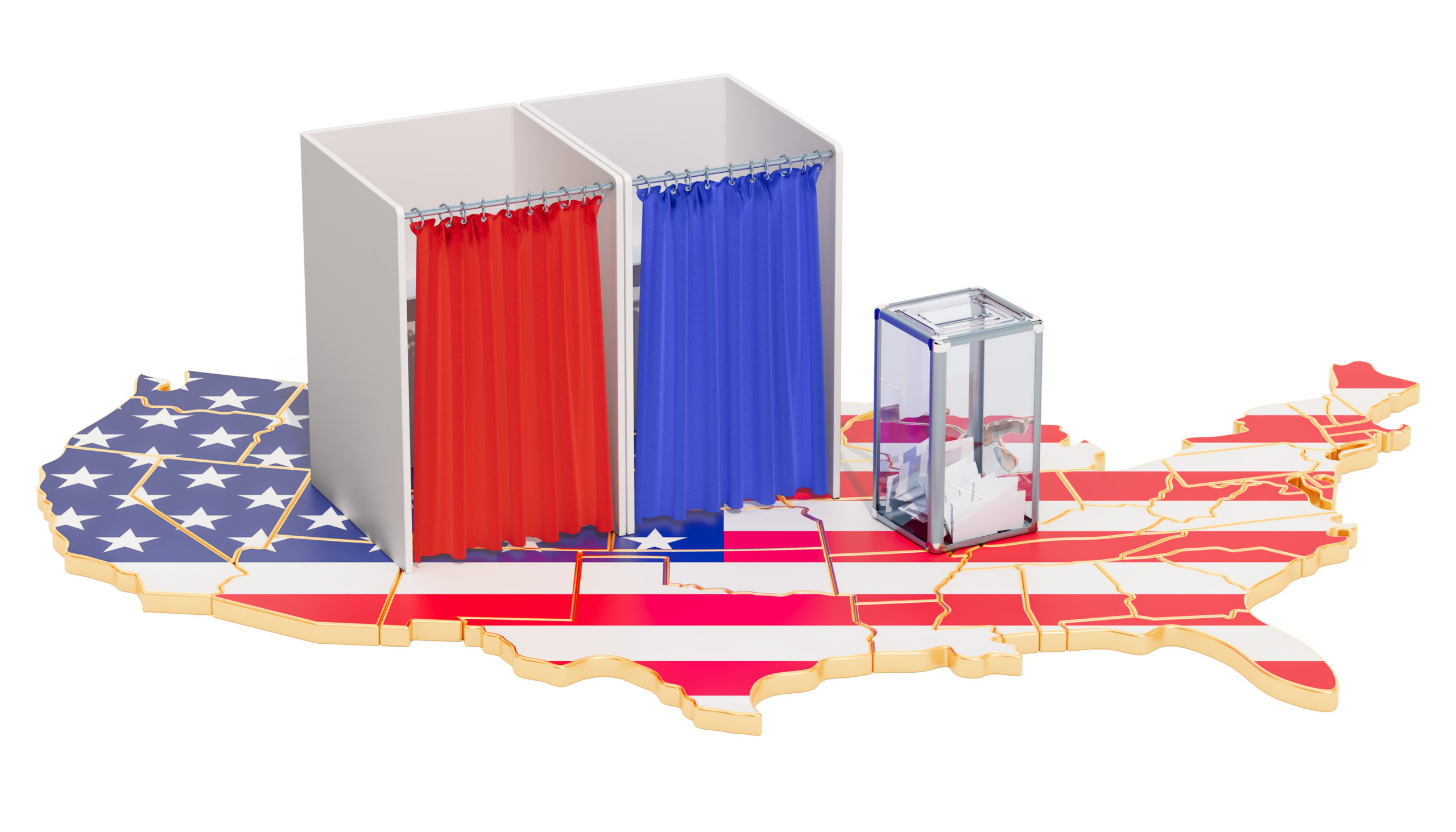Identifying Correlates of Support for Political Violence in the United States

Partisan violence refers to the use of physical force to hurt, damage, or kill opposing political partisans. It constitutes the ultimate violation of democratic norms and signals the possible collapse of democratic governance. Recent, high-profile acts of violence such as the January 6 insurrection and the attack on the Speaker of the House’s husband have stimulated concern among many researchers, practitioners, and members of the public that political violence threatens American democracy. But to effectively address partisan violence, we must identify the psychological mechanisms that drive people to support it.
Along with my colleagues James Druckman and Robb Willer, we sought to identify robust correlates of Americans’ support for partisan violence. Theory and prior research suggested many potential correlates, both those that were expressly political in nature and those common to intergroup violence more generally. Among the expressly political variables, we considered partisans’ (left–right) ideological extremity and their anti-establishment orientation, a deep-seated antagonism toward the political system itself.
Psychological Mechanisms Behind Support for Partisan Violence
Regarding factors common to intergroup violence more generally, we considered dispositional traits, attitudes toward the outgroup (in this case, opposing partisans), and general social ideologies. For instance, we assessed partisans’ dispositional need for chaos—their desire to create disruption to gain social status—and dehumanization—their explicit and blatant denial of opposing partisans’ humanity. We also assessed support for general ideologies concerning the proper social order, including system justification—the support for prevailing social conditions simply because they exist—and social dominance orientation—the support for social hierarchy and group-based dominance.
To identify robust correlates of support for partisan violence, we used several measures of such support. These included general support for partisan violence (e.g., “How much do you feel it is justified for [IN-PARTY] to use violence in advancing their political goals these days?”), willingness to engage in violence if the other party wins the 2024 Presidential Election, and support for specific acts of violence against opposing partisans that range in extremity from physical assault to murder.
Sampling Methodology
We conducted three studies of US political partisans, two of which were conducted on large, nationally representative samples (NTotal = 2,003). Because inattentive respondents can grossly inflate the correlates’ relationship with support for partisan violence, we partnered with CloudResearch (Study 1) and Bovitz (Studies 2-3) to recruit high-quality respondents. We also embedded several attention checks in each survey and excluded those who failed any of these checks.
Our samples were highly attentive, particularly the sample recruited via CloudResearch’s Connect platform, with over 98% passing both attention checks embedded in that survey.
Key Correlates of Support for Partisan Violence
In each study, we regressed support for political violence on all the correlates simultaneously. US partisans’ need for chaos, dehumanization of opposing partisans, and support for social ideologies (system justification and social dominance orientation) were strongly related to each measure of support for partisan violence. This paints the portrait of someone motivated to use disruptive methods (need for chaos), liberated from the moral restraints that inhibit harming fellow human beings (dehumanization), in order to protect their preferred social order from out-partisans deemed to threaten it.
Interestingly, the expressly political variables (left-right ideological extremity and anti-establishment orientation) were not consistently related to support for partisan violence. The robust correlates, on the other hand, encompass more than politics. Specifically, they are general dispositions (need for chaos), beliefs about the proper social order (social ideologies), or attitudes that can target a wide variety of social groups (dehumanization). This might suggest individuals inclined toward violence in politics might be similarly inclined in other areas of life (and vice versa). This is a vitally important question to address as it would provide insight into how and where interventions can be pursued.
Implications
The practical lesson is to develop interventions for this subpopulation and be wary of communications that reinforce or activate these tendencies. Institutionally, encouraging politicians, the media, educators, and civic leaders to avoid chaotic and dehumanizing language would be helpful. Our hope is these initial insights will motivate further investigations into various types of violence, leveraging multiple operationalizations and accounting for a range of variables. This will sharpen our understanding of the etiology of political violence and ways to counteract it.
You can read the full article describing this research here.
References
Arceneaux, K., Gravelle, T. B., Osmundsen, M., Petersen, M. B., Reifler, J., & Scotto, T. J. (2021). Some people just want to watch the world burn: the prevalence, psychology and politics of the ‘Need for Chaos’. Philosophical Transactions of the Royal Society B, 376(1822), 20200147. https://doi.org/10.1098/rstb.2020.0147
Hauser, D., Moss, A. J., Rosenzweig, C., Jaffe, S. N., Robinson, J., & Litman, L. (2022). Evaluating CloudResearch’s approved group as a solution for problematic data quality on MTurk. Behavior Research Methods, 54(11), 1–12. https://doi.org/10.3758/s13428-022-01999-x
Jost, J. T. (2020). A theory of system justification. Harvard University Press.
Kalmoe, N. P., & Mason, L. (2022). Radical American partisanship: Mapping violent hostility, its causes, and the consequences for democracy. University of Chicago Press.
Kleinfeld, R. (2019). Should America Be Worried About Political Violence? And What Can We Do to Prevent It? Carnegie Endowment for International Peace.
Kteily, N., & Landry, A. P. (2022). Dehumanization: Trends, insights, and challenges. Trends in Cognitive Sciences, 26(3), 222–240. https://doi.org/10.1016/j.tics.2021.12.003
Mernyk, J. S., Pink, S. L., Druckman, J. N., & Willer, R. (2022). Correcting inaccurate metaperceptions reduces Americans’ support for partisan violence. Proceedings of the National Academy of Sciences, 119(16), e2116851119. https://doi.org/10.1073/pnas.2116851119
Nazzaro, M. (2023). 83 percent in new poll concerned about violence. The Hill.
Pratto, F., Sidanius, J., Stallworth, L. M., & Malle, B. F. (1994). Social dominance orientation: A personality variable predicting social and political attitudes. Journal of Personality and Social Psychology, 67(4), 741–763. https://doi.org/10.1037/0022-3514.67.4.741
Uscinski, J. E., Enders, A. M., Seelig, M. I., Klofstad, C. A., Funchion, J. R., Everett, C., … & Murthi, M. N. (2021). American politics in two dimensions: Partisan and ideological identities versus anti‐establishment orientations. American Journal of Political Science, 65(4), 877-895. https://doi.org/10.1111/ajps.12616
Weingast, B. R. (1997). The political foundations of democracy and the rule of the law. American political science review, 91(2), 245-263. https://doi.org/10.2307/2952354
Westwood, S. J., Grimmer, J., Tyler, M., & Nall, C. (2022). Current research overstates American support for political violence. Proceedings of the National Academy of Sciences, 119(12), e2116870119. https://doi.org/10.1073/pnas.2116870119

